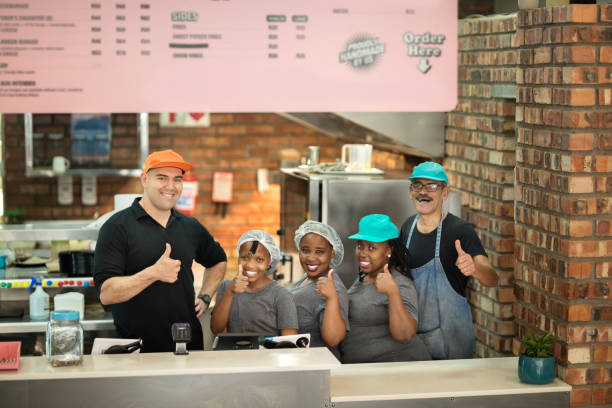Running a restaurant is already a balancing act—food costs, staff turnover, customer experience. But when you step into the realm of franchising, the numbers game gets trickier. If you’ve ever wondered how master franchise accounting procedures affect your bottom line, you’re not alone. Many small business owners feel blindsided when they discover how much accounting shapes not only compliance but also growth opportunities.
Let’s break it down in plain language, without burying you in jargon.
The Franchise Model: More Than Just Royalties
When you buy into a franchise, you’re not just paying for a name on the sign. You’re buying into a system—recipes, branding, operations playbooks, even approved vendors. Master franchise agreements take it up a notch, because you might be managing sub-franchisees under you. That means revenue doesn’t just flow from your restaurant sales; it also comes from fees, royalties, and sometimes even profit-sharing with smaller operators.
Here’s the catch: every dollar has to be tracked with precision. Why? Because one misclassified expense can skew financial statements, make tax filing a nightmare, or worse—raise red flags with regulators.
Royalties, Reports, and Reality Checks
Think of royalties as a recurring toll fee on your sales. The franchisor expects accurate reporting—usually a percentage of gross revenue, not net profit. If you’re managing a master agreement, you also become the collector. That means reconciling what sub-franchisees report with what actually hits your bank account.
Here’s where things can get sticky. Say one sub-franchisee underreports by even 2%. Over time, that snowballs into a significant shortfall. Without clear accounting processes, you might not catch it until it’s too late. And nobody wants to get into a dispute that ends up costing more in legal fees than the original royalties were worth.
Taxes Don’t Wait for Anyone
It’s tempting to think of tax compliance as something you can handle once a year, but that mindset can backfire. Federal and state taxes don’t always align neatly with franchise reporting schedules. If your books aren’t kept clean, you could face mismatches between provision estimates and final returns. And if your franchise expands internationally? Let’s just say multiple tax jurisdictions can make your head spin.
That’s why building accrual-based records is critical. It not only satisfies franchisors and auditors but also makes life easier when tax season rolls around. No one wants last-minute scrambling to reconcile deferred revenue, franchise fees, or foreign withholding taxes.
The Human Side of Numbers
Numbers might seem cold, but behind every spreadsheet sits a story. A master franchise operator once shared how delayed royalty collections strained their relationships with sub-franchisees. “It wasn’t about the money,” they said, “it was about trust.” That struck me. Accounting isn’t just arithmetic; it’s also about transparency and accountability.
Restaurant culture thrives on trust—between kitchen staff, managers, and even regular customers. Franchise accounting is no different. If your records look clean and fair, your sub-franchisees will be more likely to stay engaged and loyal.
Practical Tools That Actually Help
Spreadsheets are fine for a single shop, but when managing multiple locations, you need stronger tools. Many operators lean on platforms like QuickBooks Online or Xero, with add-ons that specialize in multi-entity accounting. Some even use industry-specific systems that integrate point-of-sale data directly into the books.
And let’s not forget reporting dashboards. Having real-time visibility into revenue, royalties, and expenses means you’re not waiting until month-end to see where cash is flowing. Sure, it might feel like an extra cost upfront, but consider it cheaper than cleaning up after an IRS audit or a franchise dispute.
Forecasting Isn’t Guesswork
Here’s the thing: accounting isn’t just about reporting the past—it’s about shaping the future. Master franchise accounting procedures can inform everything from expansion timing to staffing levels. Imagine seeing a trend that one sub-franchise consistently underperforms. Is it a location issue? A management gap? Or maybe it’s a data-entry problem that’s masking real results?
Forecasting helps you answer these questions before they become crises. Restaurants live and die by margins, and forecasts turn gut feelings into data-backed decisions.
Wrapping It Up
Franchise accounting doesn’t have to feel like walking through a maze blindfolded. Yes, the rules are specific, the paperwork can pile up, and taxes never stop circling. But with the right processes, tools, and mindset, it’s manageable. More than that—it’s a competitive advantage.
If you’re a restaurant owner stepping into franchising, remember this: numbers aren’t just compliance—they’re clarity. And clarity is what lets you scale without losing sleep.

